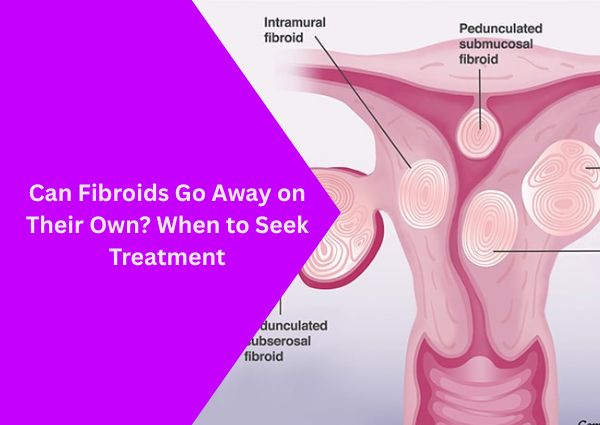
Can Fibroids Go Away on Their Own? When to Seek Treatment
Uterine fibroids are noncancerous growths that develop in or around the uterus. They are quite common among women of reproductive age and can vary in size from very small to large masses that distort the uterus. Many women wonder whether fibroids can go away naturally and when medical treatment becomes necessary. Understanding their nature, progression, and symptoms can help you make informed decisions about your health.
Do Fibroids Go Away on Their Own?
1. Fibroids and Hormonal Influence
Fibroids are strongly influenced by estrogen and progesterone, the hormones that regulate the menstrual cycle. This means that during a woman’s reproductive years, fibroids are more likely to grow. However, once hormone levels decrease, particularly after menopause, fibroids often shrink in size and symptoms may lessen or even disappear.
2. Fibroids During Pregnancy
During pregnancy, fibroids may grow due to elevated hormone levels. In some cases, they may shrink after delivery. Still, this isn’t guaranteed, and women with fibroids during pregnancy may require closer medical monitoring.
3. Can Fibroids Shrink Naturally?
Yes, fibroids can sometimes shrink naturally, especially after menopause when hormonal activity slows down. Small fibroids may cause no symptoms and might not require treatment at all. However, waiting for fibroids to shrink is not always advisable, especially if they are causing severe pain, heavy bleeding, or fertility issues.
When to Seek Treatment
1. Persistent or Heavy Menstrual Bleeding
If you are experiencing prolonged, heavy periods that interfere with daily life, it’s important to consult a gynecologist. Heavy bleeding can lead to anemia and other complications if left untreated.
2. Severe Pelvic Pain or Pressure
Large fibroids may press on nearby organs, causing pelvic pain, frequent urination, constipation, or backache. If these symptoms are disrupting your routine, medical evaluation is necessary.
3. Fertility and Pregnancy Concerns
Fibroids can sometimes interfere with conception or cause complications during pregnancy. Women facing difficulty conceiving or those with recurrent miscarriages should seek medical guidance to check if fibroids may be the cause.
Treatment Options for Fibroids
1. Medications
Certain medicines can help manage symptoms like heavy bleeding and pain. While they don’t eliminate fibroids completely, they can provide temporary relief.
2. Minimally Invasive Procedures
Procedures like uterine artery embolization or hysteroscopic removal can shrink or remove fibroids without the need for major surgery. These are suitable for women who want faster recovery and less downtime.
3. Surgical Treatments
For larger fibroids or severe symptoms, surgical options such as myomectomy (removal of fibroids while keeping the uterus intact) or hysterectomy (removal of the uterus) may be recommended. The right choice depends on age, family planning, and overall health.
Conclusion
Fibroids may sometimes shrink on their own, especially after menopause, but not all cases can be left untreated. If symptoms like heavy bleeding, severe pain, or fertility issues are present, timely medical intervention is crucial. Every woman’s situation is unique, and personalized guidance from a specialist ensures the best outcomes.
Dr. Preeti Tandon provides the best services for diagnosing and treating fibroids, offering compassionate care and advanced treatment options tailored to each patient’s needs. If you are experiencing symptoms of fibroids, seeking expert advice can make all the difference in restoring your health and peace of mind.



